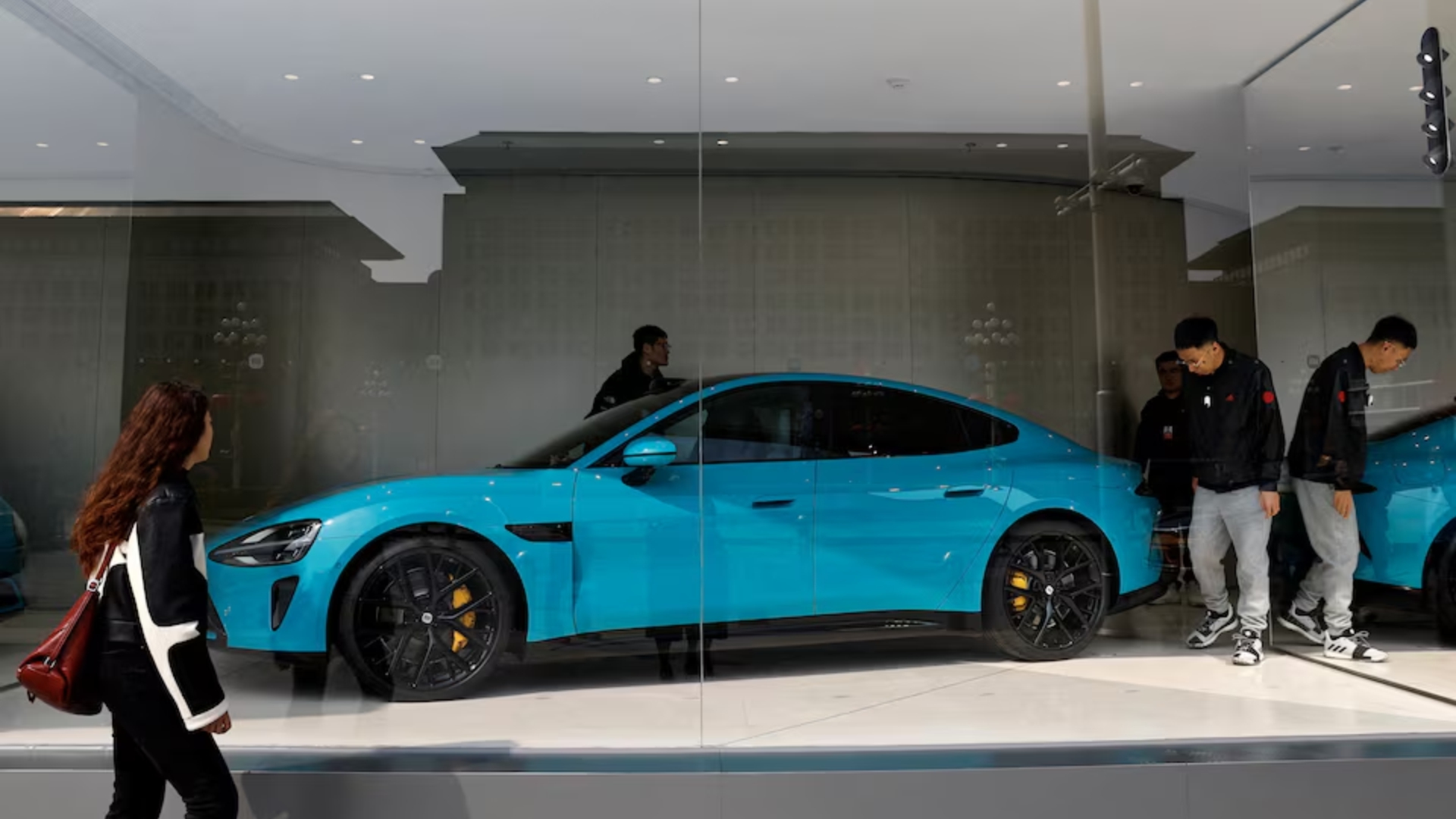BEIJING, (Reuters) – China’s Xiaomi will launch its highly anticipated electric vehicle (EV) on Thursday when it will reveal its pricing and start taking orders, marking the electronics company’s entry into the world of automobiles.
The world’s third largest smartphone vendor has only said so far that its car will be priced below 500,000 yuan ($69,170.64). Models it unveiled in over 70 stores across China on Monday have drawn comparisons to Porsche’s Taycan and Panamera sports car models.
The launch fulfills an ambition of Xiaomi’s CEO and founder Lei Jun, who announced the company’s foray into EVs in 2021. He pledged to invest $10 billion in Xiaomi’s auto business, describing it as “the last major entrepreneurship project” of his life.
Since then, updates on the project, from its manufacturing partnership with state-owned automaker BAIC Group to the December showcase of the SU7 – short for Speed Ultra 7 – sedan, have been feverishly followed in China.
Analysts have been split on whether Xiaomi’s car project will succeed. Some say it is a natural extension for Xiaomi – whose rice cookers, air purifiers, and other electronics are ubiquitous in Chinese homes – allowing it to offer its users a more seamless digital experience and to collect more data.
In China’s digitally oriented car market, “there are no better companies at knowing how to monetise screens than mobile device companies”, said Bill Russo, CEO of Shanghai-based advisory firm Automobility.
But, in a departure from the company’s image as an affordable brand, Lei has said the SU7 will be “a bit expensive”.
Some analysts estimated that the car will be priced at 200,000 to 300,000 yuan ($27,668.26 to $41,502.39) or above.
“Can (Chinese consumers) take that leap psychologically from mass-market, cool, inexpensive consumer products and home products to premium EV?” asked Tu Le, founder of consultancy Sino Auto Insights, noting that most of the vehicles sold in China are below 300,000 yuan.
Xiaomi did not immediately respond to a request for comment.
PRICE WAR
Xiaomi’s SU7 is going on sale at a time when China’s auto market, the world’s biggest, is battling challenges on several fronts, including a price war and a slowing domestic economy that has sapped demand for cars.
“The current market environment is quite challenging for newcomers with the top 10 players continuously expanding their market share,” said Gavekal Dragonomics analyst Ernan Cui.
“If Xiaomi can’t sell at scale in a short time, it’s facing the risk of being a profit dragger for the company for longer.”
Working in Xiaomi’s favor, however, is revenue generated from other business units, added Le of Sino Auto Insights.
“The risk is that they focus too much on the EV space and lose focus on the sectors and products that got them there.”
Xiaomi has deep pockets compared to other EV players, a Bernstein analysis of 12 companies in January showed. It ranked Xiaomi third, behind Huawei and SAIC, but ahead of nine automakers including BYD and Xpeng, in terms of cash and cash equivalents.
Moreover, analysts say Xiaomi’s smartphone expertise gives it an edge over traditional automakers when it comes to smart cockpits – a feature Chinese consumers prize.
The SU7 uses the company’s self-developed Hyper OS as the operating system that connects EV users to its other devices, including smartphones.
One version of the sedan comes with a driving range of up to 668 km (415 miles) on a single charge, while the other has a range of up to 800 km. In comparison, Tesla’s Model S has a range of up to 650 km.
Bernstein analysts said that they believe Xiaomi’s most direct competitors will be the likes of XPeng and Tesla.
($1 = 7.2285 Chinese yuan renminbi)
Reporting by Sarah Wu and Yelin Mo in Beijing; Editing by Brenda Goh and Muralikumar Anantharaman











